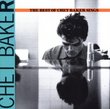| All Artists: Jean Sibelius, Herbert von Karajan, Berlin Philharmonic Title: Sibelius: Symphonies Nos. 1, 4, 5 & 6 Members Wishing: 0 Total Copies: 0 Label: EMI Classics Release Date: 2/12/2002 Genre: Classical Styles: Historical Periods, Modern, 20th, & 21st Century, Symphonies Number of Discs: 2 SwapaCD Credits: 2 UPCs: 724357485821, 724357485852 |
Search - Jean Sibelius, Herbert von Karajan, Berlin Philharmonic :: Sibelius: Symphonies Nos. 1, 4, 5 & 6
 | Jean Sibelius, Herbert von Karajan, Berlin Philharmonic Sibelius: Symphonies Nos. 1, 4, 5 & 6 Genre: Classical
|
Larger Image |
CD DetailsSimilarly Requested CDs
|
CD ReviewsWorld-class Sibelius from Karajan/Berlin Mark E. Stenroos | Laguna Niguel, CA | 09/19/2005 (5 out of 5 stars) "These recordings make a welcome reappearance on EMI, recompiled in EMIs Double forte series, and in new remasterings. Missing is Karajan's contemporaneous digital remake of Sym 2 - which is a bit strange as Sym 2 is the work best known to the public, at least on this side of the pond. Karajan's Sibelius is often criticized for being too Germanic, too lush and too smoothed over. Those criticisms are given the lie in these remarkably forceful recordings. Yes - Karajan does not bring to the fore the many string ostinato patterns that provide the motor energy in these works, but if you listen for such passage work, you will hear it. That Karajan chooses not to emphasize the trees for the forest is an interpretive decision, nothing more, nothing less. Listen closely and one will hear why Sibelius himself was such a fan of Karajan's earlier recordings with The Philharmonia. There's a perfect balance between all choirs of the orchestra. Listen also for those points where Karajan (and Sibelius) "turn over" a theme or melody from one section of the orchestra to another. Here, Karajan is unmatched in the seamless transition in "instrumental counterpoint" (as we used to say at music school). Compared to Karajan's much-lauded DG recordings for Syms 4-7, I find these later EMI recordings more compelling, at least as far as 4 & 5 go. The EMI recordings provide more warmth than their DG counterparts and prove once again that the guys at EMI knew how to record an orchestra (whereas the guys at DG generally failed to keep any consistency in portraying the Berlin Phil under Karajan in a realistic light). Having experienced the Berlin Phil under Karajan at Carnegie Hall, I can safely say that EMI more faithfully captured the sound that I heard in live performance than did DG. The only "problem" with these EMI recordings is that 1) Karajan didn't bother to redo Sym 7, and 2) he never performed or recorded Sym 3. Considering that Karajan eventually filled in the blanks on complete cycles of the symphonies of Schubert, Bruckner and Tchaikovsky (sans Manfred), it's a shame that he never did the same with Sibelius. Oh well. I can recommend these recordings wholeheartedly to diehard fans of Sibelius and newcomers as well. There is a virulent anti-Karajan lobby out there that has accomplished nothing much - except to keep a few listeners here and there away from some pretty great recordings. Forget the naysayers and give a listen for yourself. I think you'll be favorably impressed with both the music making and the recorded sound on these valuable reissues." Karajan and Sibelius at their best Mark E. Stenroos | 03/03/2003 (5 out of 5 stars) "Von Karajan's recordings of Sibelius's symphonies are superb and wonderful, and it is great to see that EMI rereleased these performances. While all of the works on this two CD bargain are beautifully performed, the high points must be the 4th and 5th symphonies. The performance of the 4th perfectly captures its cold, brooding character. It's opening is subtle and mysterious, in contrast to the loud and portentious opening of Maazel's recording with the Vienna Philharmonic. The 5th is the jewel of the set though, and is perhaps the best account of the piece put to disk. Karajan plays the Berlin Philharmonic like an organ, with precision and plenty of thunder and sweetness, although Karajan's pacing is measured so well that it is not until the final crashing chords of the last movement that the tension of the work is finally released and its power fully realised. The 1st and 6th Symphonies are also well done, and the simple, enjoyable Karelia suite could not be done with more charm or vigor." Generally, not the way I prefer my Sibelius. Jeffrey Lee | Asheville area, NC USA | 05/11/2004 (3 out of 5 stars) "I thought I'd give Karajan another go at Sibelius after my less than favorable commentary on his DG set (containing Symphonies 4,5,6,7) some time ago. This EMI double fforte gives us the conductor's re-recorded First, Fourth, Fifth and Sixth along with the Karelia Suite. To be honest, this set changes very little my general view of Karajan as a Sibelian. I realize quite a few have praised and continue to praise highly his interpretations in both stereo sets. But there IS a broad variety of tastes displayed among classical aficionados. I find Karajan's Sibelius a bit too rounded, upholstered and controlled as well as too bass heavy at times, particularly in the more dramatic portions of the First Symphony. With Sibelius, I like a freer, more open approach that permits the sounds of nature to speak more vibrantly and eloquently. Where called for, I want to hear melodies sing and soar. As far as I am concerned, seemingly little is able to really break loose from Karajan's somewhat emotionally static mold. Moreover, I don't sense that much contrast between light and shade, so important to aesthetic fulfillment with this composer. Karajan sounds relatively monochromatic. One exception, however, is the conductor's rendition of the Sixth Symphony, where he seems pretty well attuned to its lighter moments and its exotic atmospheric landscape. Elsewhere, the Karelia Suite just plods along without much vivacity. Apart from Karajan's Sixth, I like Vanska's, Anthony Collins'( mono ), Ashkenazy's, Segerstam's with the Helsinki Philharmonic and Saraste's. In the First, my choices are Maazel/Vienna, Collins and Stokowski/National Philharmonic ; in the Fourth, I prefer Maazel/Vienna and Collins; for the Fifth, it's Bernstein/New York Philharmonic, Collins, Ashkenazy, Barbirolli/Halle Orchestra and Ormandy's stereo lp version on RCA, but nla ; finally, Maazel, Sargent and Collins satisfy me most in the Karelia Suite, and Vanska's complete Karelia on Bis is very interesting and enjoyable. Incidentally, despite the fuss made by some about Colin Davis' Sibelius ( either Boston OR London Symphony ), I frequently find that conductor's interpretations rather unmoving."
|

 Track Listings (8) - Disc #1
Track Listings (8) - Disc #1




![Seussical [2000 Original Broadway Cast]](https://nationalbookswap.com/cd//m/02/4802/514802.jpg)



